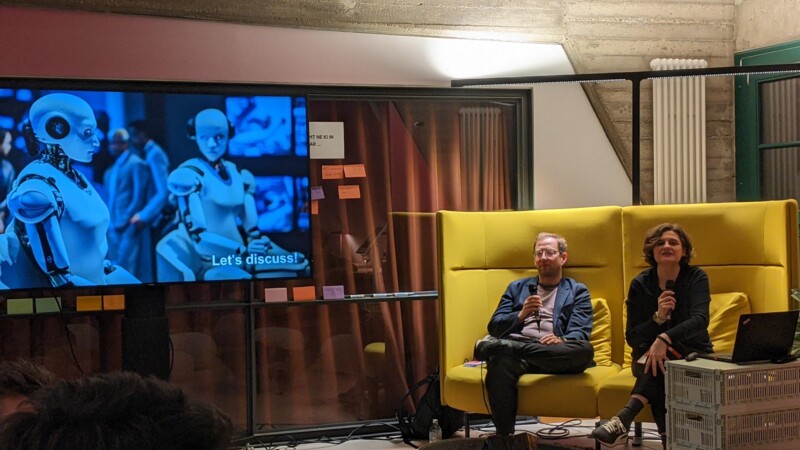Talks on the new law had centered mainly on limiting the potential risks of various AI applications early and on avoiding over-regulation that would thwart innovation and competition. Krtil has expressed satisfaction with the compromise. "The agreement is an important step towards more responsible AI. We need a responsible approach to AI to develop secure, scalable and robust systems that give us a competitive edge over 'unsafe' systems." The AI law provides the required "legal framework". Yet, the term is slightly restrictive, according to Krtil, as the EU has agreed on framework conditions that can boost rather than hinder innovation.
All 27 EU members voted unanimously for the Artificial Intelligence (AI) law in early February that sets standards for using AI safely and responsibly in Europe. However, the vote had been preceded by many heated debates on transparency requirements for generative AI such as ChatGPT or rules on biometric real-time recording. Hamburg News spoke to AI expert Alois Krtil, CEO of the Artificial Intelligence Centre Hamburg (ARIC) about the compromise reached.
AI law safe - but not anti competitive

Law provides legal certainty for innovations
"Let's take e.g., generative AI, a field that opens up entirely new applications and business models." The momentum behind a technology that produces texts and images came bang in the middle of the negotiations on the AI law and had to be fast-tracked, so to speak. Many called for regulations on the new generation of AI. The pending regulations, combined with the fear of liability risks, could have led to a wait-and-see attitude. "That would have disadvantaged us in international competition. Now, the AI Act provides legal certainty and facilitates new products and services or innovations in general."
AI maturity
The regulation also counteracts "dangerous uncontrolled growth" which would see large immature AI models come onto the market, according to Krtil. That basically means that problems have arisen during the training of AI models, i.e., complete data sets are saved. "Then, the algorithm outputs fully stored data and reveals, for instance, personal data," said Krtil. The new law calls for the avoidance of overfitting and imposing security measures. "The AI Act means that potential risks in the development of AI applications must be taken more seriously from the outset." That should improve the quality of AI and lead to more competitive advantages.
Requirements on SMEs
The new AI law Act affects companies to varying degrees. SMEs will incur additional costs, while larger companies with existing compliance departments will find it easier to implement the guidelines. However, the greater trust in secure systems, which the AI law hopes to ensure, could benefit especially SMEs in particular and appeal to hitherto sceptical target groups as a result, proponents of the law say.

AI act as a competitive edge
The AI Act offers Hamburg a great opportunity. "Hamburg is an AI hotspot with more than 120 start-ups working on AI alone and the city ranks third after Berlin and Munich." Given Hamburg's edge in terms of AI applications for the B2B sector, the city should benefit from the tougher safety requirements. "AI solutions for local government, renewable energies, harbours or logistics must be subjected to closer monitoring. The law's safety and quality requirements should automatically lead to a competitive edge," Krtil stressed. Safety is always at the forefront of AI development. "But the damage potential of AI applications on critical infrastructure naturally differs from that of a lifestyle product."
European law subject to interpretation
EU member states are responsible for controlling, enforcing and monitoring the AI law. "The law also foresees fines of up to 6 per cent of annual global turnover in the event of transgressions," said Krtil. But EU laws are always subject to interpretation. "That path lies ahead of us. The AI law has to be implemented and then take effect."
ys/sb
Read the other parts in our AI series:
1) Hamburg clearly an AI hotspot, says Alois Krtil
2) AI Summit 2023 focuses on doom or boom aspects
5) Europe to rival U.S. and China with 'Responsible AI"?
6) AI rescuing island radio amid lack of presenters
7) Generative AI revolutionising content creation?
8) Using AI for recruiting amid lack of skilled labour
9) AI or no AI?
Sources and further information
More
Similar articles

AI or no AI?

EUR 50,000 for AI projects in education

